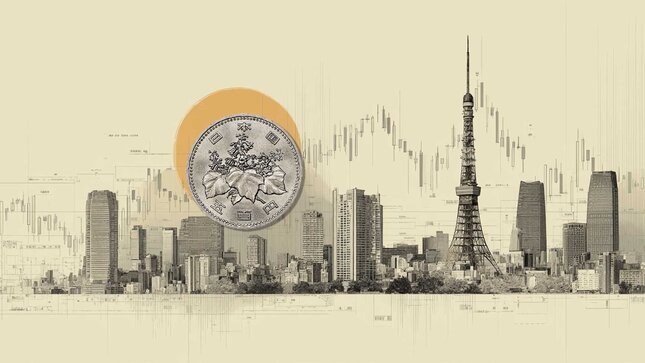- Steve is one of the world’s leading experts in trading performance and psychology, having spent the last 10 years working with traders and fund managers in banks, funds, energy companies and proprietary trading groups across the globe.
“Emotions! How many times have traders been told that emotions are bad, emotions get in the way of trading, successful traders are less emotional. Yet Steve Ward explains how emotions are essential to the decision making process and how they keep our brains focused on critical information. Emotional factors in decision making can serve a purpose. In classic ‘Steve Ward’ fashion he grounds his guidance in solid neuroscientific research explanation.“ (Linda Raschke, President at LBR Group Inc, CTA, from the foreword to TraderMind, November 2014)
Can You Help Me Trade Without Emotion?
We work with a lot of traders in one-to-one coaching and workshops and one repeating request that we encounter is “Can you help me to trade without emotion?” In a recent online seminar 79 per cent of attendees indicated that they would like to be able to trade without emotion. Is this the same for you? Would you also like to be able to trade without emotion?No trader has ever lost or made money solely based on emotion – it takes action to pull the trigger. The feeling of an emotion and the taking of an action are separate events and it is possible to feel a feeling and act differently. You can feel tired and yet get out of bed. You can feel hungry and yet not eat anything. You can have a sense of fear and yet still enter the market, or a feeling of anxiety when in the market, and still stay in a trade. Emotions bring an urge for action but we do not have to take that action. It is possible, with practise, through developing emotional awareness, and learning how to regulate more extreme emotions, combined with some commitment to your strategy, to feel an emotion and to not have to act upon it.
The Neuroscience of Emotion
Neuroscience research over recent years has resulted in some big shifts in thinking on the role that emotions play in decision making and these shifts have implications for you as a trader. Emotions have evolved as ways for your brain to make sense of the world around you, they keep your brain focused on critical information, and enable you to act on that information, to gain what you desire and avoid what you fear. You need an emotional factor in decision making to appreciate the possible outcomes of a decision. Most real life decisions cannot be based entirely on logic as the information that you have is usually incomplete or ambiguous, and that is certainly true in the markets. George Soros has stated that he relied on his emotions a lot in his investment process because of the inadequacy of knowledge in the markets.Figure 1 shows how your brain processes information, and not only is emotion a key part of this process, it is the first part of it. You are feeling, before you are thinking.
Emotions help you to decipher whether something is a risk to be managed (fear) or an opportunity to be taken advantage of (excitement) – and that is very useful in trading. Knowledge communicated via emotions either explicitly or implicitly enables you to make fast and efficient decisions.
The New Emotions and Trading Paradigm
From the relevant neuroscience research three key guiding principles emerge that we believe are important for you to understand and act upon, if they are to enhance their decision making and performance;1. Emotions are essential to the decision process
2. Emotions are data – they provide messages about your experience
3. Emotions cannot be controlled – but they can be regulated/managed
Because emotion is a key, and actually useful, component of your decision process your goal in trading should therefore, not be to trade without emotion as that, even if it were possible, would actually compromise the effectiveness of your decisions. Rather we would suggest that the goal is to work with your emotions, to be more in tune with them, to improve your ability to coordinate and refine your thinking and feeling processes to enhance your decision making (2).
Editors’ Picks

EUR/USD: US Dollar to remain pressured until uncertainty fog dissipates Premium
The EUR/USD pair lost additional ground in the first week of February, settling at around 1.1820. The reversal lost momentum after the pair peaked at 1.2082 in January, its highest since mid-2021.

Gold: Volatility persists in commodity space Premium
After losing more than 8% to end the previous week, Gold (XAU/USD) remained under heavy selling pressure on Monday and dropped toward $4,400. Although XAU/USD staged a decisive rebound afterward, it failed to stabilize above $5,000.

GBP/USD: Pound Sterling tests key support ahead of a big week Premium
The Pound Sterling (GBP) changed course against the US Dollar (USD), with GBP/USD giving up nearly 200 pips in a dramatic correction.

Bitcoin: The worst may be behind us
Bitcoin (BTC) price recovers slightly, trading at $65,000 at the time of writing on Friday, after reaching a low of $60,000 during the early Asian trading session. The Crypto King remained under pressure so far this week, posting three consecutive weeks of losses exceeding 30%.

Three scenarios for Japanese Yen ahead of snap election Premium
The latest polls point to a dominant win for the ruling bloc at the upcoming Japanese snap election. The larger Sanae Takaichi’s mandate, the more investors fear faster implementation of tax cuts and spending plans.
RECOMMENDED LESSONS
Making money in forex is easy if you know how the bankers trade!
I’m often mystified in my educational forex articles why so many traders struggle to make consistent money out of forex trading. The answer has more to do with what they don’t know than what they do know. After working in investment banks for 20 years many of which were as a Chief trader its second knowledge how to extract cash out of the market.
5 Forex News Events You Need To Know
In the fast moving world of currency markets where huge moves can seemingly come from nowhere, it is extremely important for new traders to learn about the various economic indicators and forex news events and releases that shape the markets. Indeed, quickly getting a handle on which data to look out for, what it means, and how to trade it can see new traders quickly become far more profitable and sets up the road to long term success.
Top 10 Chart Patterns Every Trader Should Know
Chart patterns are one of the most effective trading tools for a trader. They are pure price-action, and form on the basis of underlying buying and selling pressure. Chart patterns have a proven track-record, and traders use them to identify continuation or reversal signals, to open positions and identify price targets.
7 Ways to Avoid Forex Scams
The forex industry is recently seeing more and more scams. Here are 7 ways to avoid losing your money in such scams: Forex scams are becoming frequent. Michael Greenberg reports on luxurious expenses, including a submarine bought from the money taken from forex traders. Here’s another report of a forex fraud. So, how can we avoid falling in such forex scams?
What Are the 10 Fatal Mistakes Traders Make
Trading is exciting. Trading is hard. Trading is extremely hard. Some say that it takes more than 10,000 hours to master. Others believe that trading is the way to quick riches. They might be both wrong. What is important to know that no matter how experienced you are, mistakes will be part of the trading process.
The challenge: Timing the market and trader psychology
Successful trading often comes down to timing – entering and exiting trades at the right moments. Yet timing the market is notoriously difficult, largely because human psychology can derail even the best plans. Two powerful emotions in particular – fear and greed – tend to drive trading decisions off course.



